We’re going bananas for sustainable, fruit-and-veg-based fashion
With Veganuary in full swing, we're salivating over green grocer-inspired alternatives to animal product-based accessories. This is style which is simply radishing.
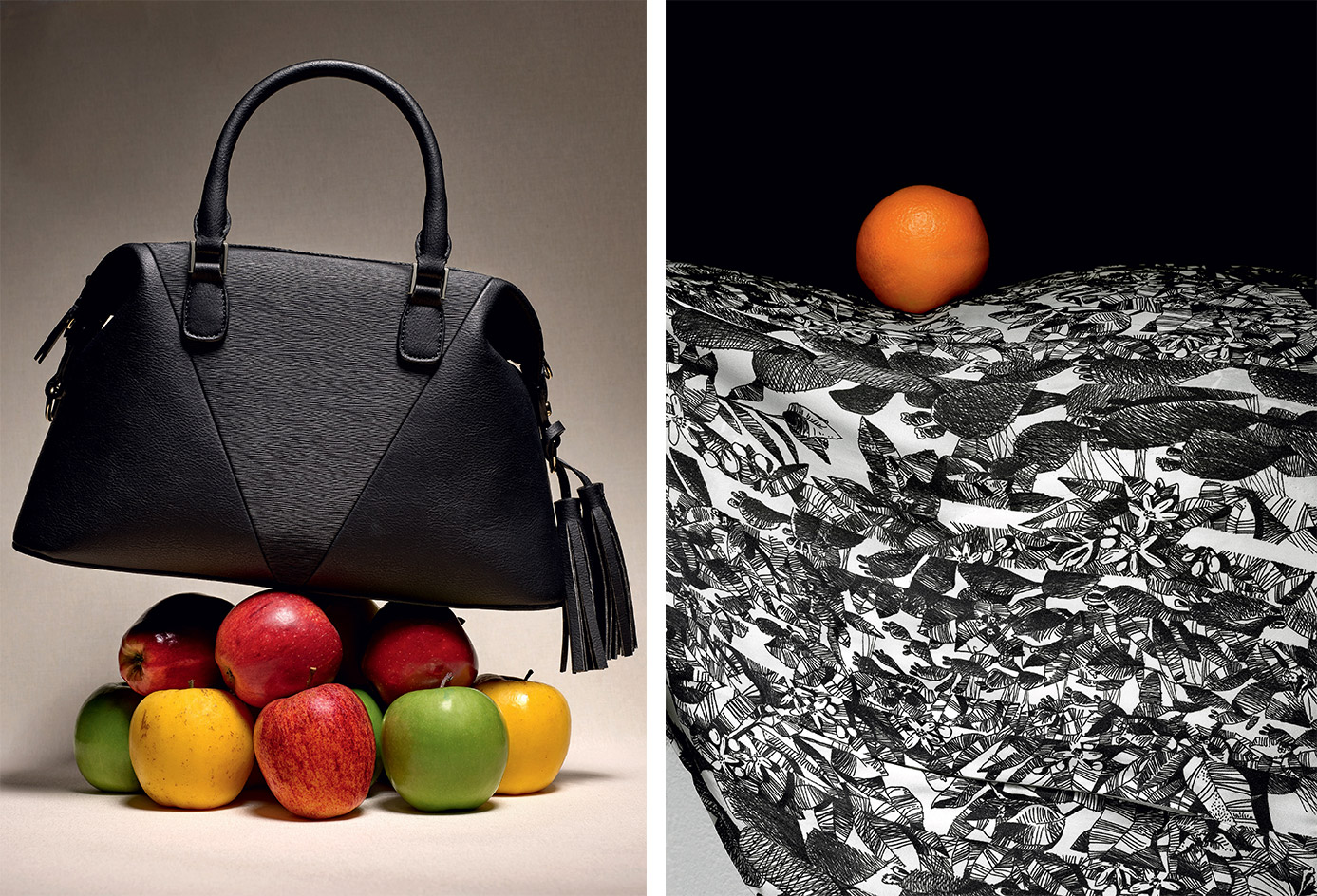
Peter Langer - Photography
Fruit and vegetables are good for us. We all know that. But what if our clothes counted towards our five a day? Would that make the planet healthier, too? We are told the one thing we can do to reduce our carbon emissions is to eat less beef, so the next step would be to wear less leather. We also know that cotton production is water-intensive and polluting. So the next generation of textiles made from apple peel, grape pulp, oranges and pineapples is here not a moment too soon. Never mind eat more greens. What we really need is to wear them.
First, though, designers need to know where to find these healthy new fibres and, in January, the Future Fabrics Expo in London showcased the best of them. The exhibition was the brainchild of Nina Marenzi, who in 2010 founded The Sustainable Angle, a not- for-profit organisation that aims to help reduce the environmental impact of the fashion industry, and Amanda Johnston, a curator and consultant.
Part of their mission is to showcase alternatives to non-renewable, oil-based polyesters and cotton. ‘In their place, we are seeing an increase in recycled synthetics and regenerated cellulosic materials from varied plant-based sources,’ said Marenzi. At the expo, there was a veritable cocktail of fruit-based fabrics on show, including Vegea, made from grape waste from the wine industry, Orange Fiber, from the Italian citrus industry and producing a textile so soft and luxurious it has already been used by Salvatore Ferragamo; Frumat, a leather alternative from apple waste; and MycoTex, a mushroom-based textile that can be modelled into clothes without the need to cut and sew.
Agricultural waste is becoming a serious business. Jayesh Vir, co-founder and president of banana fibre start-up Green Whisper, says ‘the eco- bre market is expected to reach $74bn by 2020’. His banana fibre uses a process free from chemicals and the resulting textiles are lightweight, high strength, super absorbent, stain proof and fire retardant. Already Vir is in talks with various brands in the US, Asia and France – about shoes and clothing – as well as hotels and an airline.
Similarly ambitious is Agraloop, a new system that transforms waste and residue from pineapple, banana and sugar cane into yarn. Dubbed ‘Crop-A-Porter’, it will reward farmers for doing something productive with their leftovers (which are otherwise burnt or left to rot, producing CO2 along the way), as well as making a low-carbon, smart resource for creating biodegradable textiles. Agraloop won the 2018 Global Change Awards – an event created by the H&M Foundation in an effort to find future solutions for our fashion and textile industry.
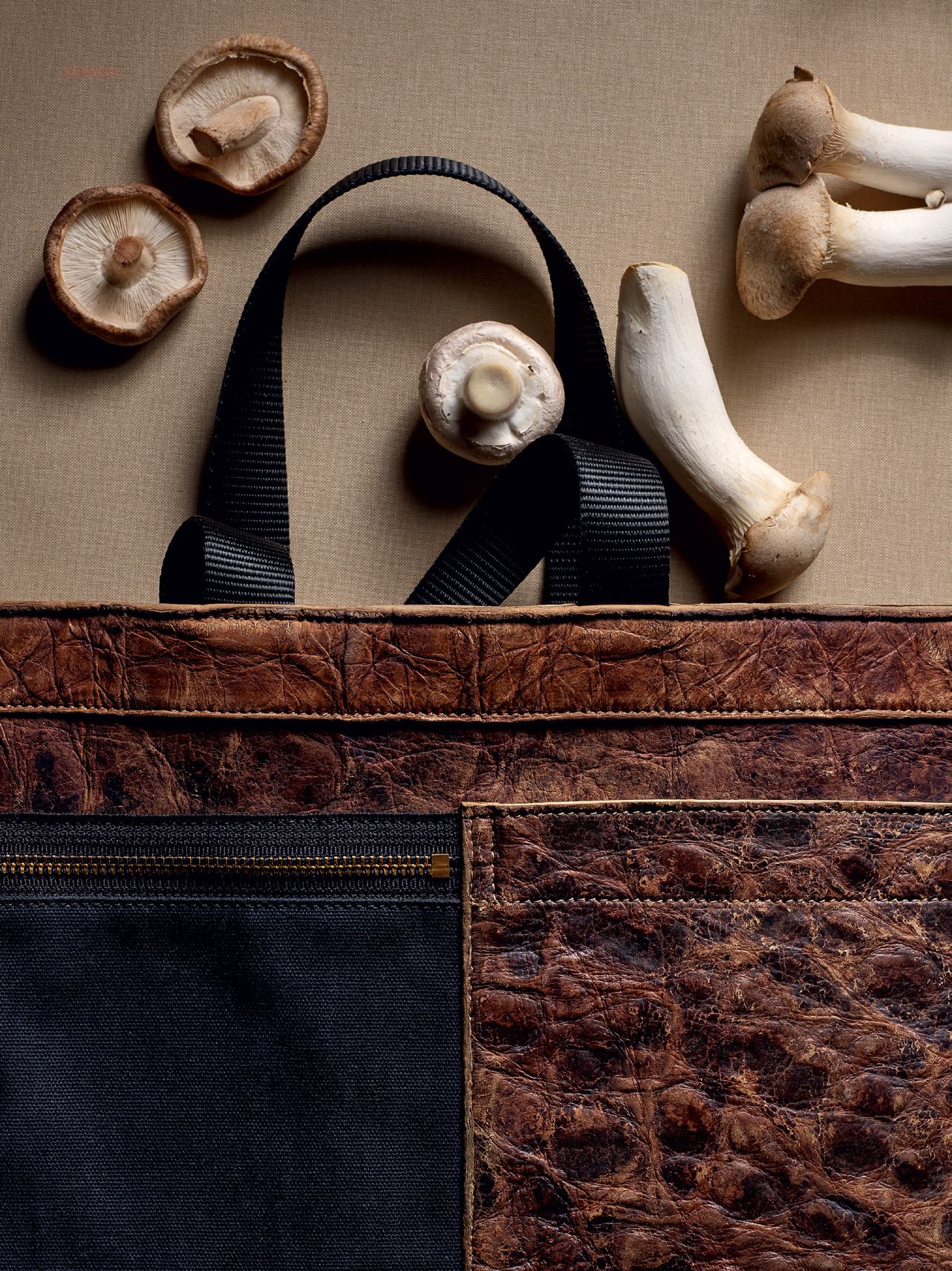
’Bolt Projects Mylo Driver’ bag, $400, by Bolt Threads.
For brands such as H&M, as well as luxury giants such as Kering, there is a race to close the loop on non-sustainable virgin materials. The brands that invest in sustainable new materials will be the ones we’ll still be talking about, and wearing, in 20 years. H&M has a goal of using 100 per cent ‘recycled or other sustainably sourced materials’ by 2030. ‘We have supported the production of materials derived from citrus peel, grape skins and stalks, and pineapple skin,’ says Giorgina Waltier, sustainability manager for H&M UK and Ireland. ‘In the future, we hope to incorporate as many of these new materials into our collections as possible.’
RELATED STORY
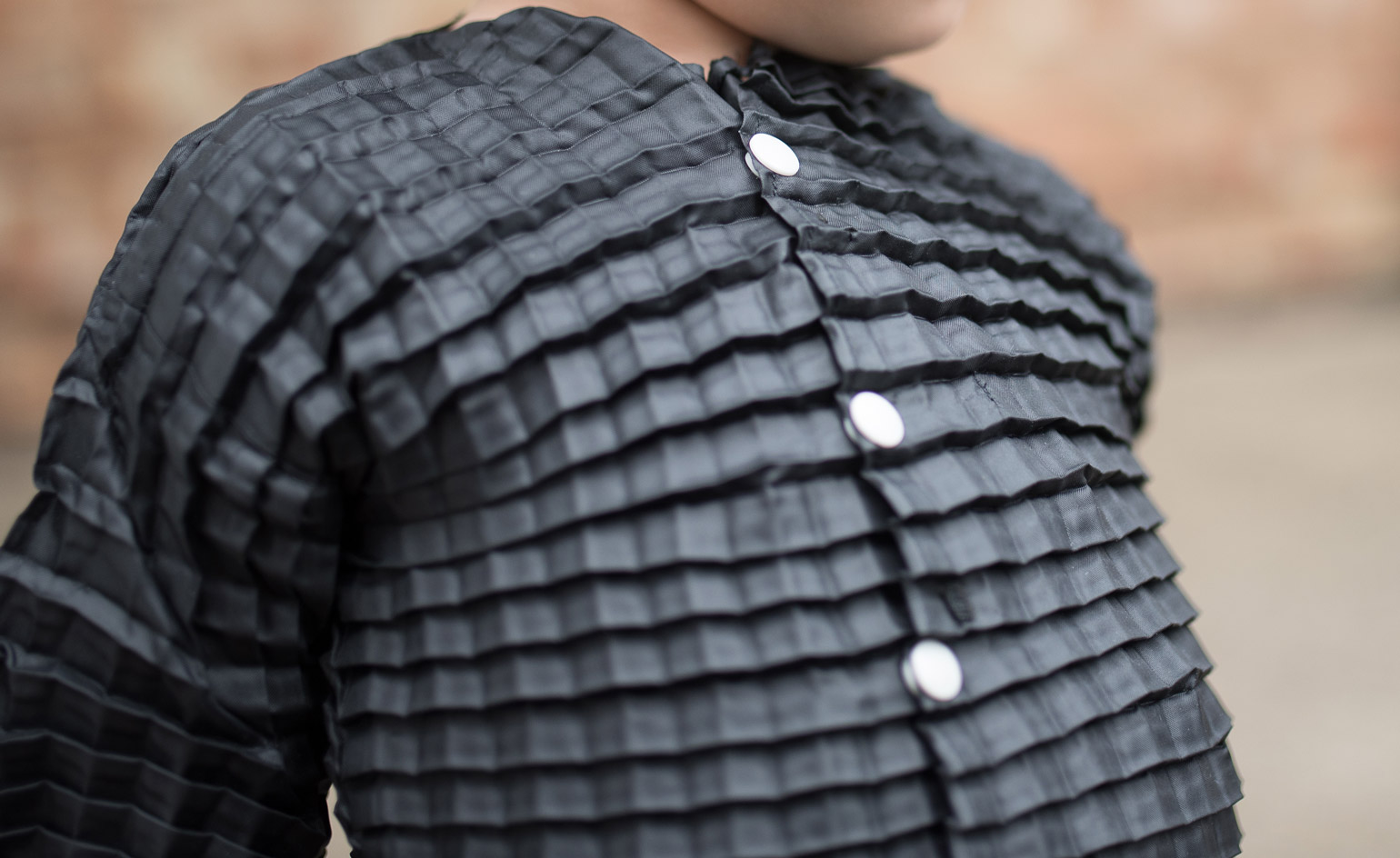
Petit Pli – Clothes that Grow
Stella McCartney has led the way as a luxury vegetarian brand and now she is increasingly looking to carbon-free alternatives for her sought-after, cruelty-free ‘Falabella’ tote bags and vegan Adidas Stan Smith trainers. McCartney has partnered with Bolt Threads, an American start-up that is developing Mylo, a lab-grown leather made from mycelium, the underground root structure of mushrooms. Their first Mylo ‘Falabella’ bag was exhibited as part of the V&A’s ‘Fashioned From Nature’ exhibition last year.
And now a new generation of designers is picking up the torch. One such is Paolo Carzana, currently on a Kering sustainability scholarship at London’s Central Saint Martins. He graduated from the University of Westminster in 2018 with an extraordinary collection made exclusively from reclaimed fabrics and Piñatex, an alternative to leather made from pineapple leaves.
Piñatex founder Carmen Hijosa has been working on creating an alternative to leather since the 1990s, when she was consulting for the Philippine leather export industry. Shocked by the level of pollution she saw from traditional leather production, she set out to find a non-petroleum, plant-based, low-carbon leather alternative. She went to London’s Royal College of Art to research her idea to turn pineapple leaves into a hard-wearing material and Piñatex is one of the biotech fabrics already available on the market – it is used by shoe brands Artesano and Nae Vegan, as well as in trainers by Boss, and biker jackets by Altir.
Wallpaper* Newsletter
Receive our daily digest of inspiration, escapism and design stories from around the world direct to your inbox.
In 2019, the company plans to scale up sales and production, with its sights set on interiors and car interiors, as well as fashion and accessories. And there is no shortage of raw material – pineapples are the second biggest tropical fruit crop in the world (mangoes are number one). They come wrapped in 20-25 fibrous leaves that all go to waste when they are picked; this by-product, which previously had no value, can now provide rural communities with additional income.
For designers like Carzana, the plant-based provenance and environmental footprint of new materials like these is everything. ‘We need to work intensively with these materials, showing that hand-crafted, thoughtful garments can be made with these textiles and be more interesting than animal-based products,’ he says. ‘It is working with nature rather than against it.’ And when the result is clothes that look good enough to eat, that makes perfect sense.
As originally featured in the March 2019 issue of Wallpaper* (W*240)
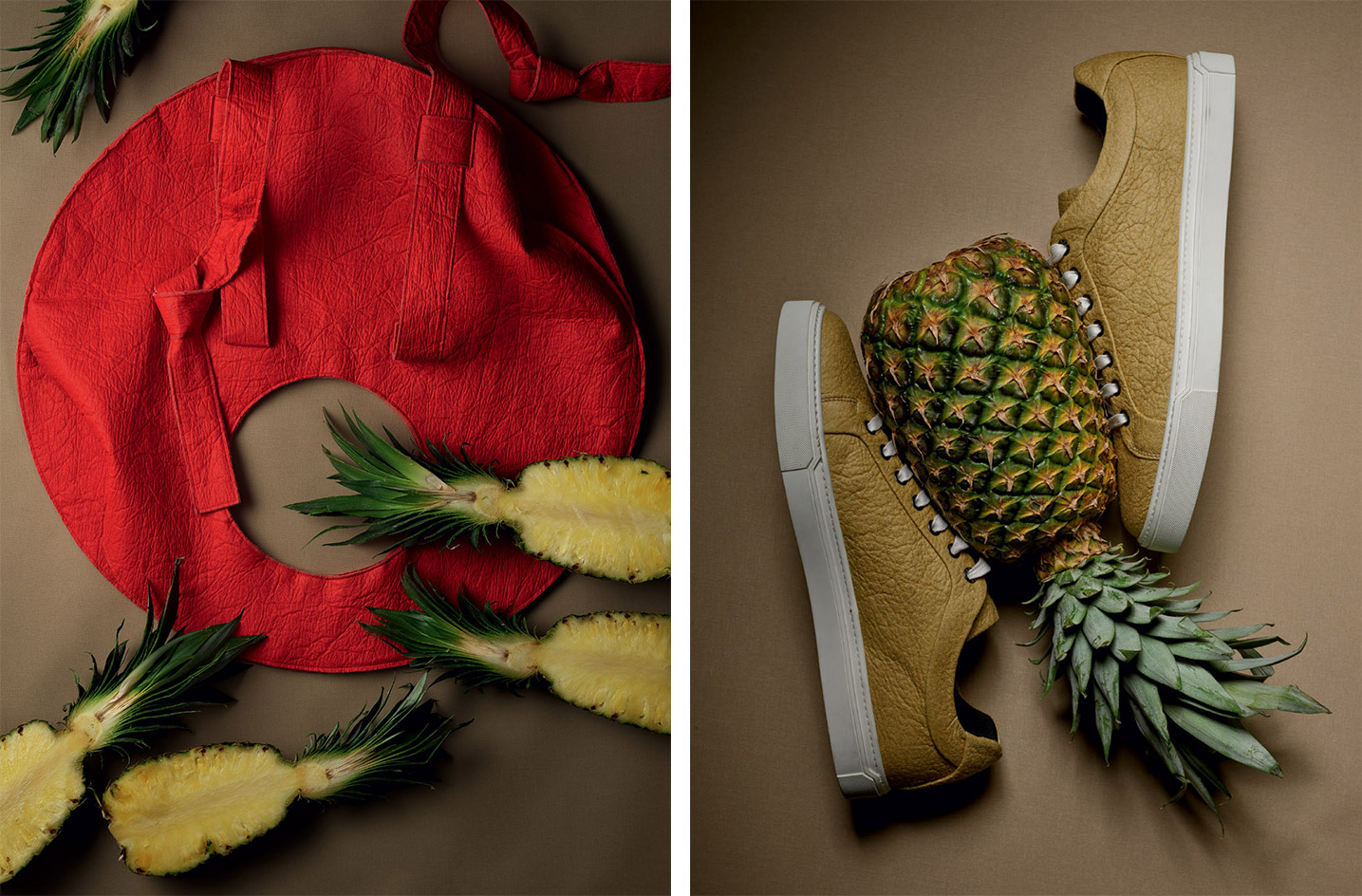
Left, ’Bigroundbikebag’, €676, by Things I Miss. Right, vegan trainers, £219, by Boss, both made of Piñatex, a natural leather alternative created using fibres extracted from pineapple leaves, a waste product of the fruit crop
- Peter Langer - PhotographyPhotographer
-
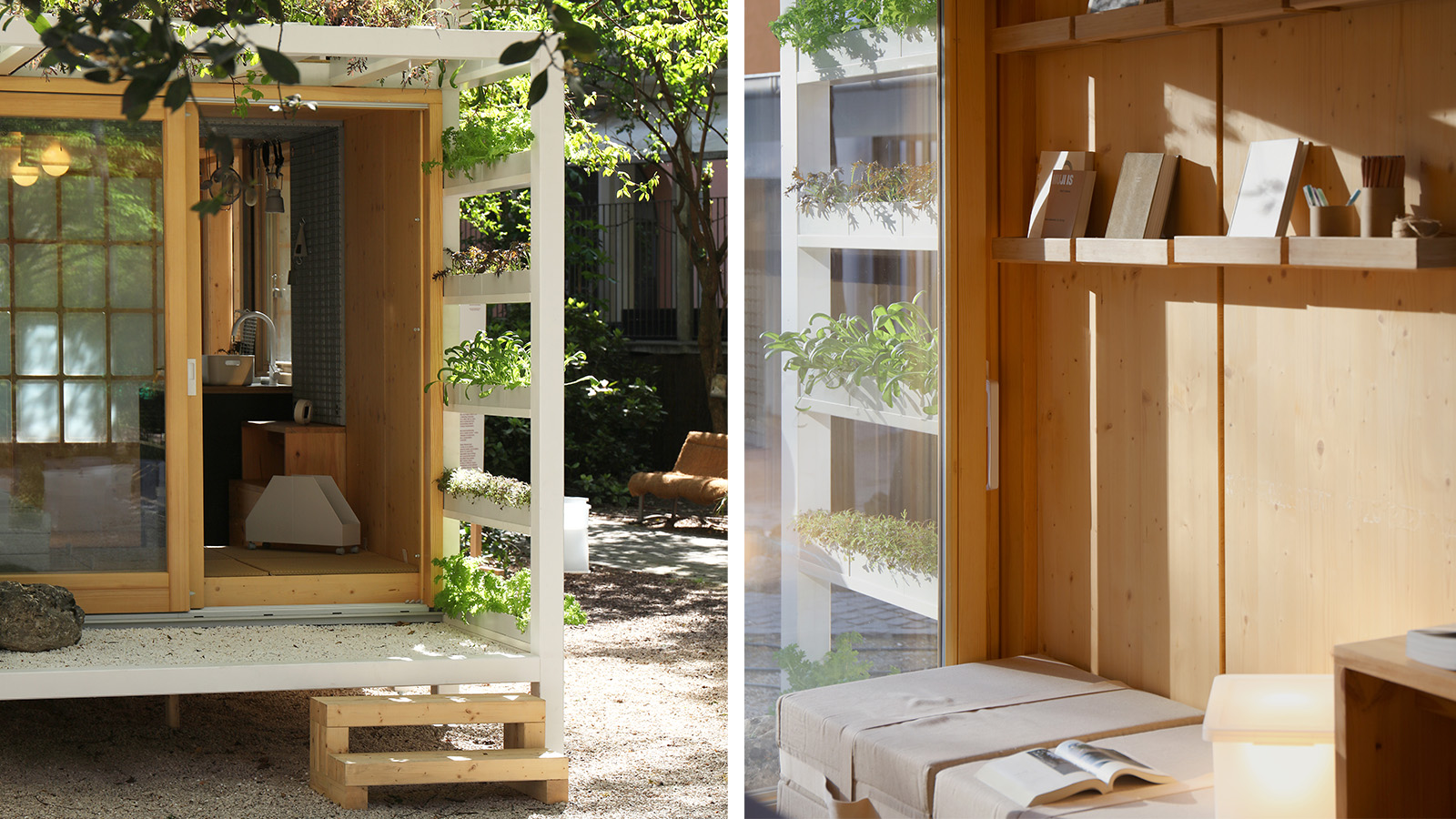 Japan in Milan! See the highlights of Japanese design at Milan Design Week 2025
Japan in Milan! See the highlights of Japanese design at Milan Design Week 2025At Milan Design Week 2025 Japanese craftsmanship was a front runner with an array of projects in the spotlight. Here are some of our highlights
By Danielle Demetriou
-
 Tour the best contemporary tea houses around the world
Tour the best contemporary tea houses around the worldCelebrate the world’s most unique tea houses, from Melbourne to Stockholm, with a new book by Wallpaper’s Léa Teuscher
By Léa Teuscher
-
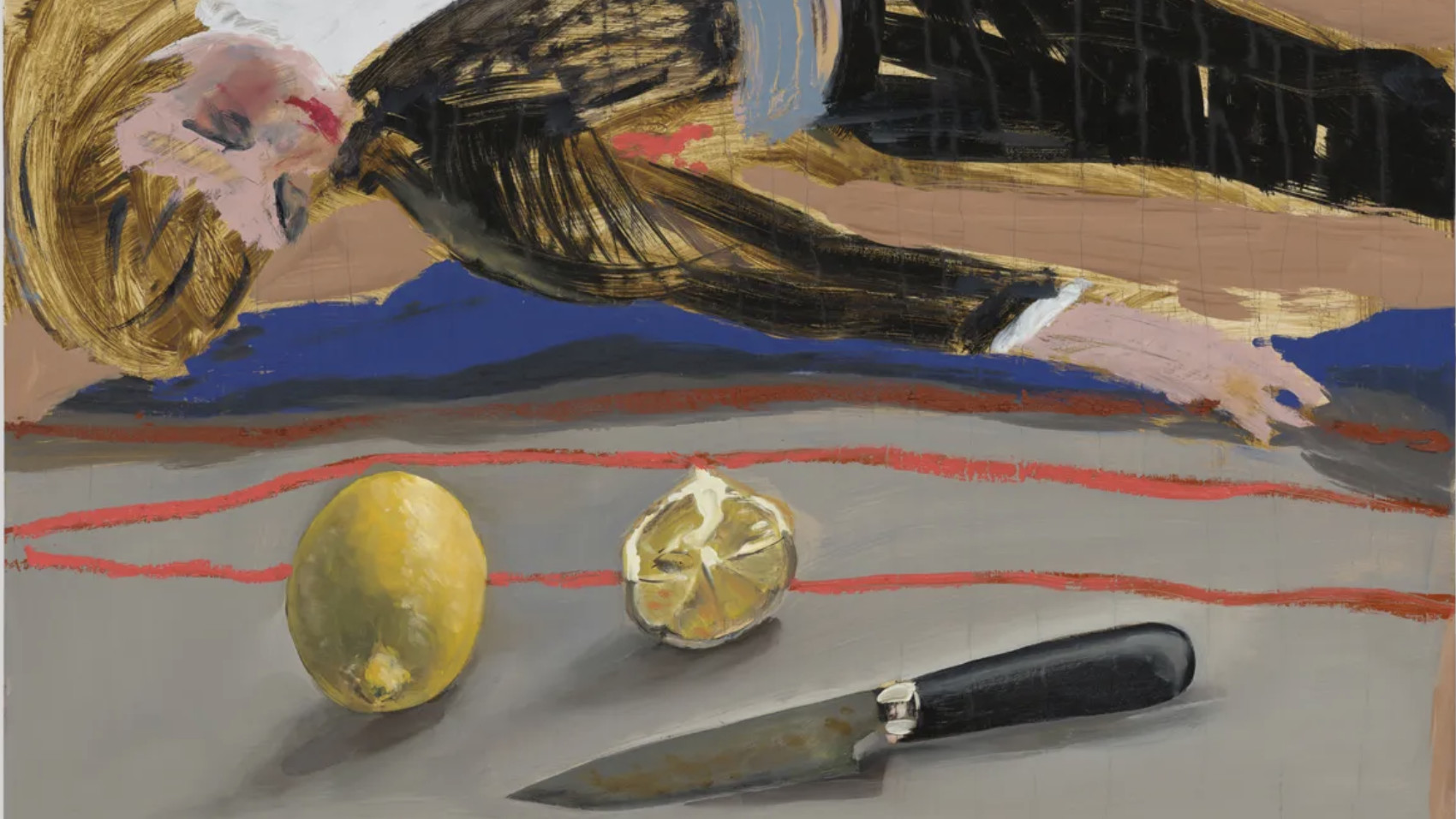 ‘Humour is foundational’: artist Ella Kruglyanskaya on painting as a ‘highly questionable’ pursuit
‘Humour is foundational’: artist Ella Kruglyanskaya on painting as a ‘highly questionable’ pursuitElla Kruglyanskaya’s exhibition, ‘Shadows’ at Thomas Dane Gallery, is the first in a series of three this year, with openings in Basel and New York to follow
By Hannah Silver
-
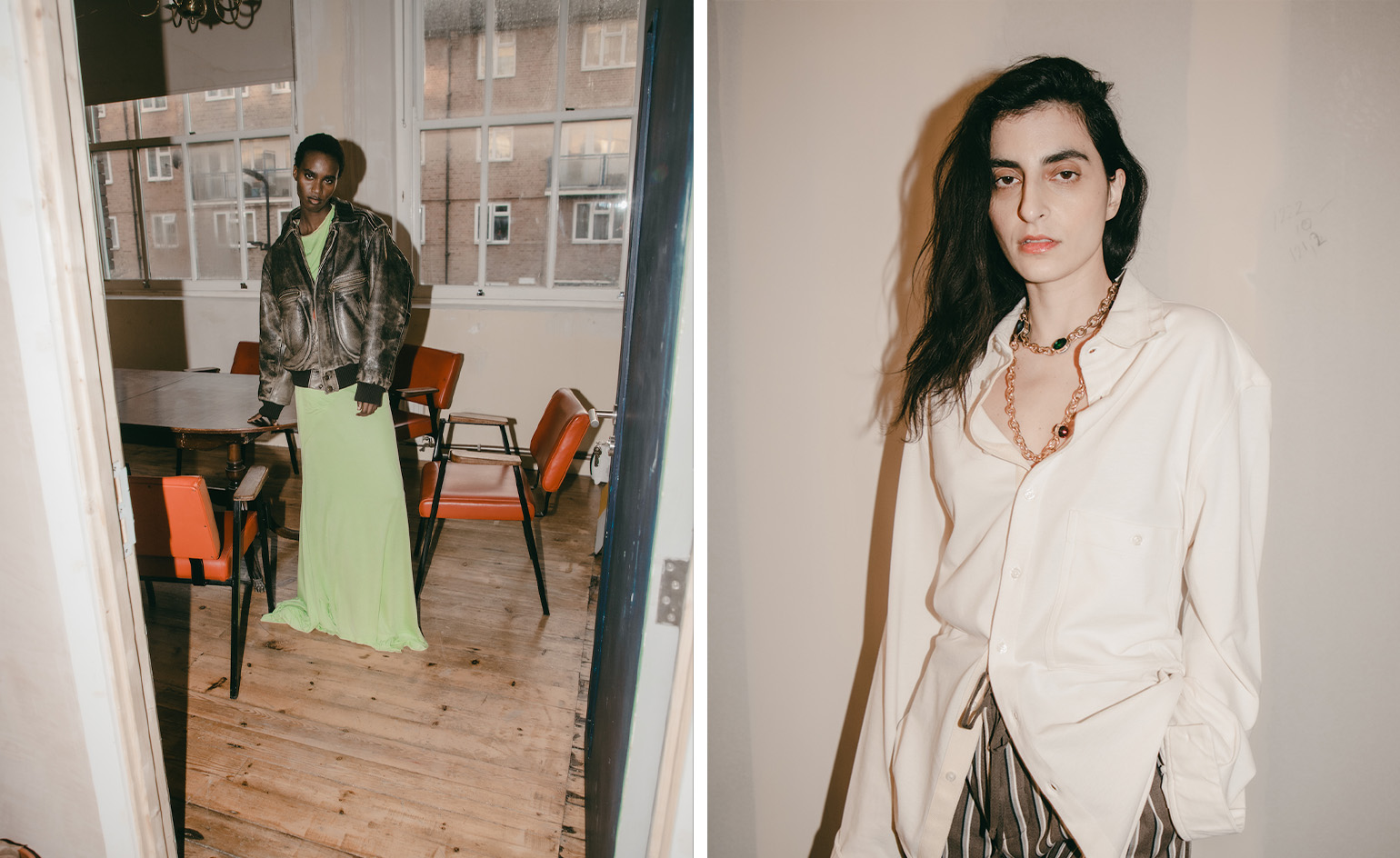 Cult 1960s boutique Granny Takes A Trip gets a sustainable reboot
Cult 1960s boutique Granny Takes A Trip gets a sustainable rebootFounded on King’s Road in 1966, ‘radically creative’ fashion store Granny Takes A Trip is being reimagined for a new generation. Dal Chodha takes a closer look
By Dal Chodha
-
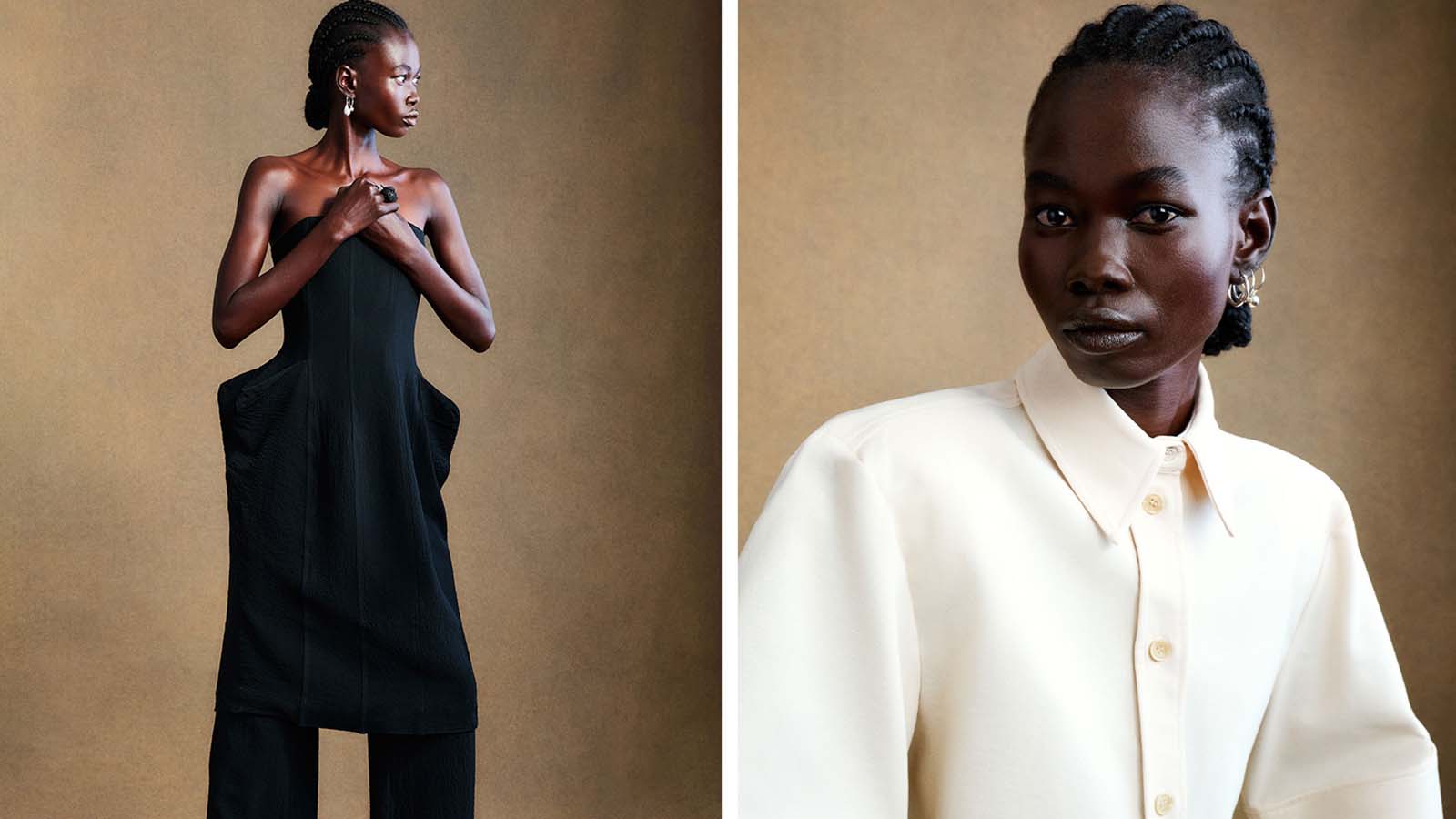 BITE Studios: ‘We want to have a brand which makes an impact’
BITE Studios: ‘We want to have a brand which makes an impact’BITE Studios is marrying sustainable textiles – from seaweed fabric to pea silk – with designs by a team including alumni of Proenza Schouler and Acne Studios
By Tilly Macalister-Smith
-
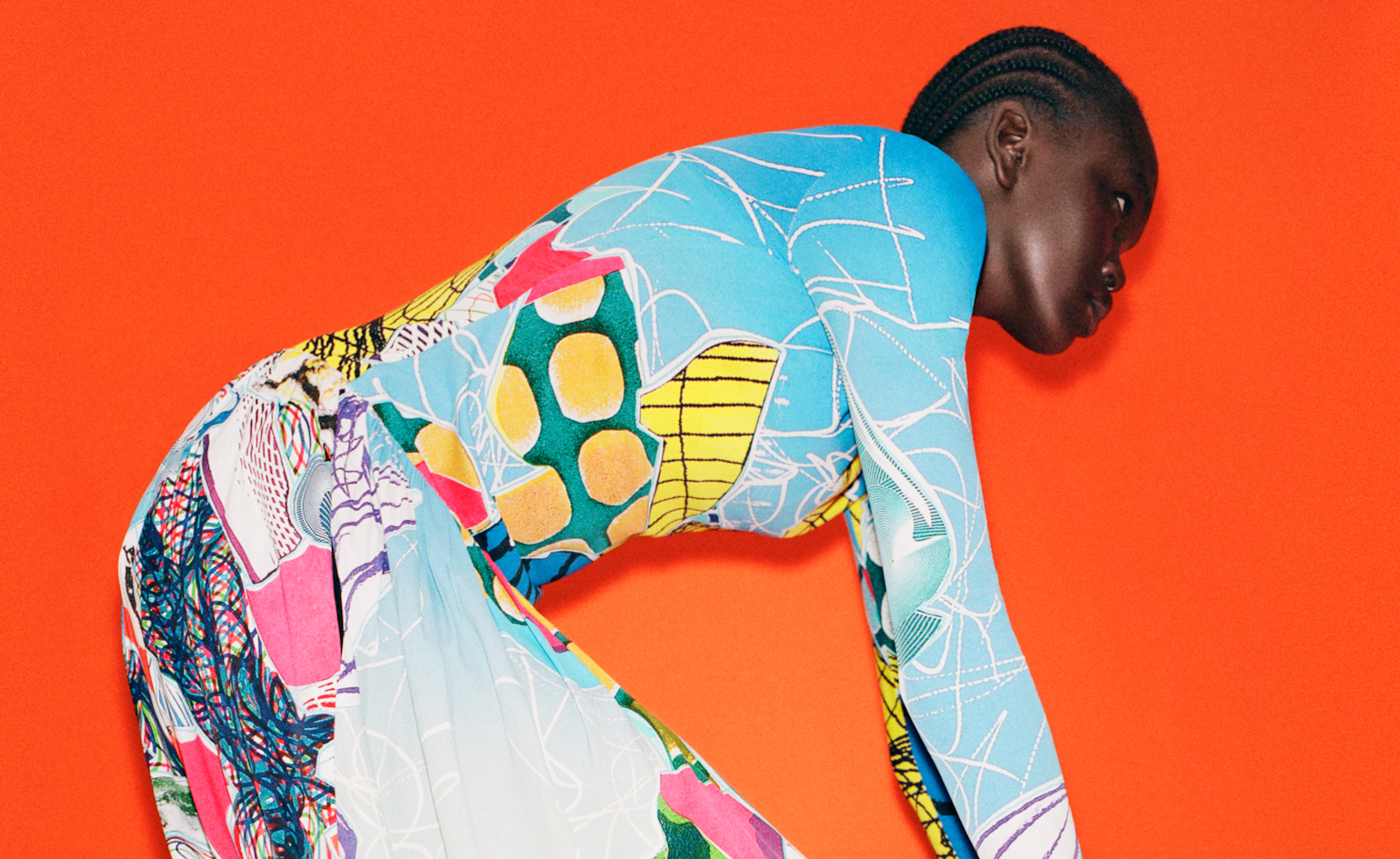 Stella by Stella: Stella McCartney reimagines Frank Stella’s artworks for A/W 2022
Stella by Stella: Stella McCartney reimagines Frank Stella’s artworks for A/W 2022First shown at Paris’ Pompidou Centre, Stella McCartney’s fashion-art crossover for A/W 2022 sees the designer reinterpret the artworks of American painter and sculptor Frank Stella through clothes
By Jack Moss
-
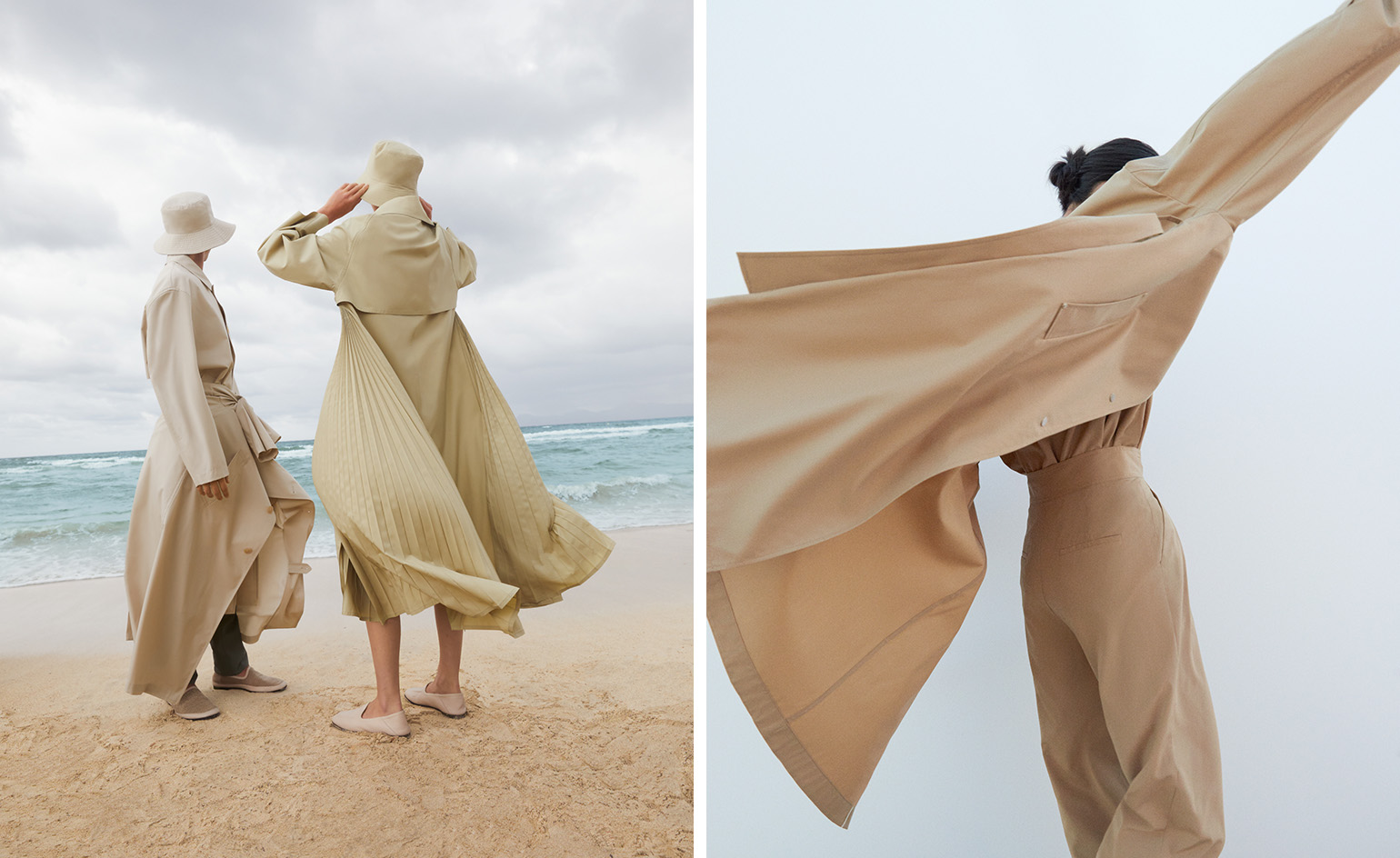 Icicle, the cross-continental label championing sustainability for 25 years
Icicle, the cross-continental label championing sustainability for 25 yearsOn the arrival of a new collection, ‘Hemp Up’, womenswear artistic director Bénédicte Laloux tells Wallpaper* the story behind minimally minded fashion label Icicle
By Jack Moss
-
 Louis Vuitton announces decade long project to rewild London's Chelsea
Louis Vuitton announces decade long project to rewild London's ChelseaCentral London’s first ‘Heritage Forest' on Pont Street in Chelsea, will be the result of a rewilding partnership between Louis Vuitton, Cadogan and SUGi
By Laura Hawkins
-
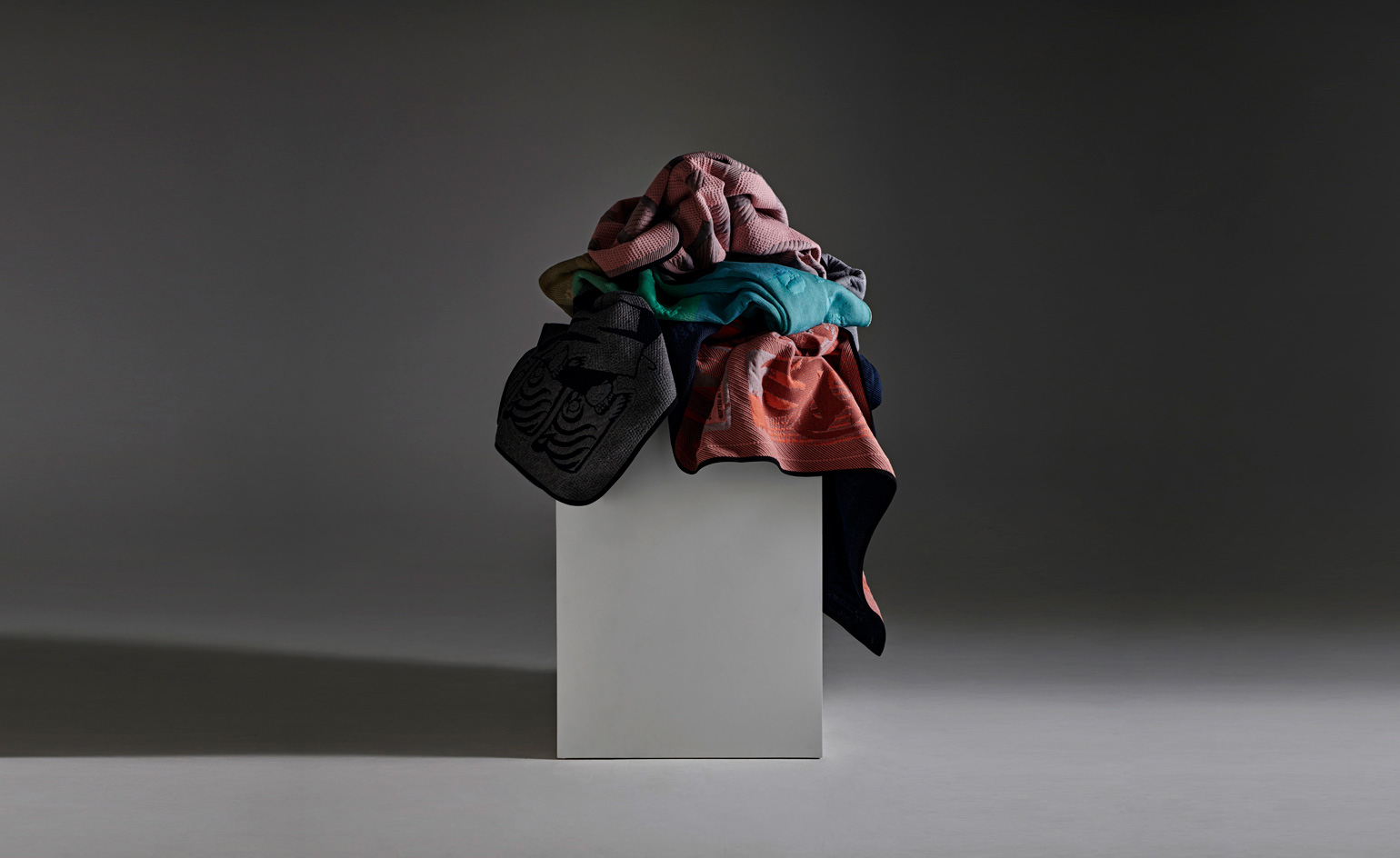 Textile innovator Byborre empowers creators to cut waste
Textile innovator Byborre empowers creators to cut waste‘We developed a new process that allows creators to innovate,’ says Borre Akkersdijk, co-founder of Dutch textile innovation studio and clothing label Byborre
By Yoko Choy
-
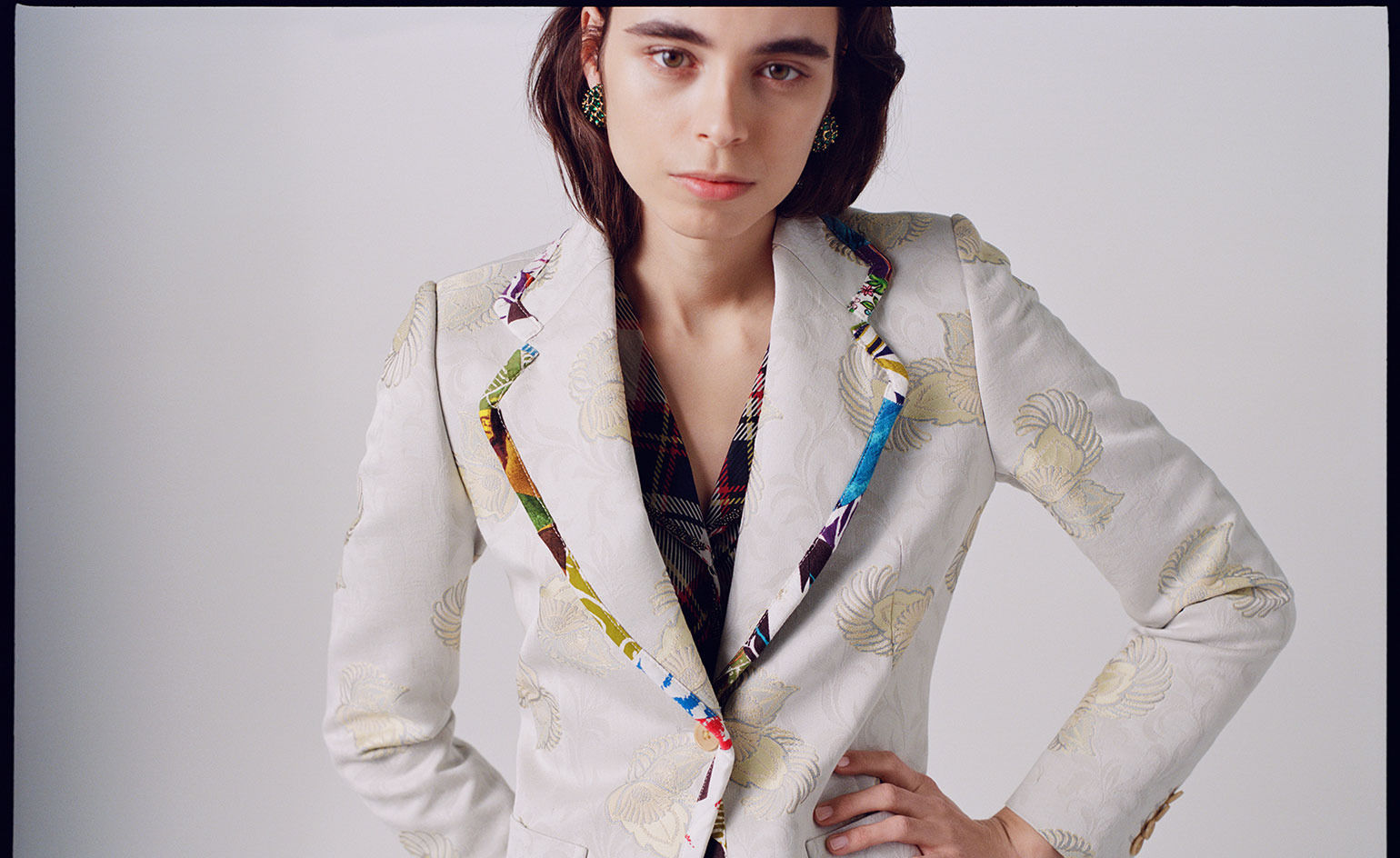 How to shop more sustainably this summer
How to shop more sustainably this summerWhat is sustainable fashion, and how can you shop with an environmentally friendly focus? Here, we present our checklist on how to look and feel good on the inside and out
By Laura Hawkins
-
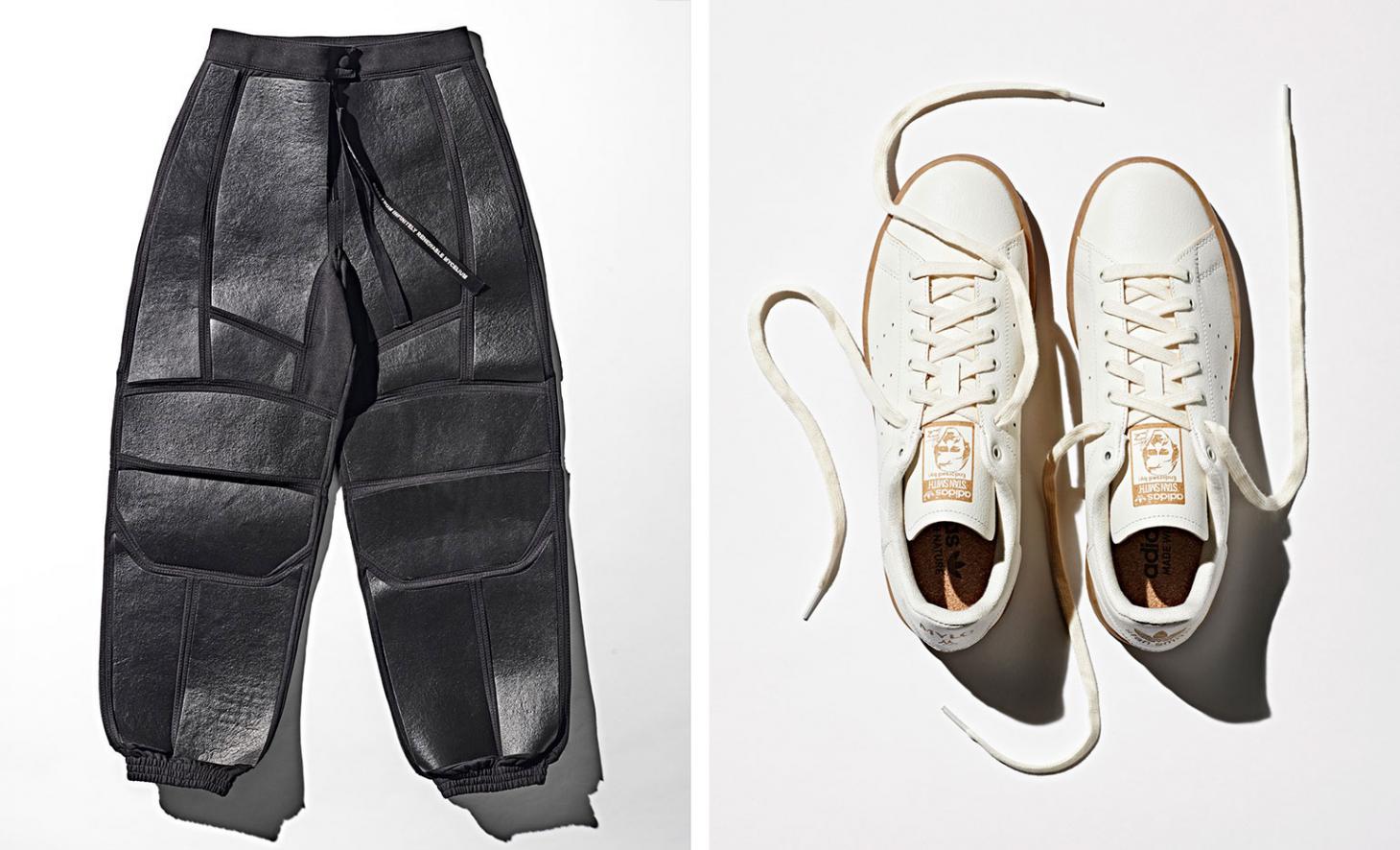 Mushrooms are being transformed into sustainable luxury materials
Mushrooms are being transformed into sustainable luxury materialsThe fashion and sportswear brands on a mission to create a greener future with fungi, from Stella McCartney to Lululemon
By Laura Hawkins